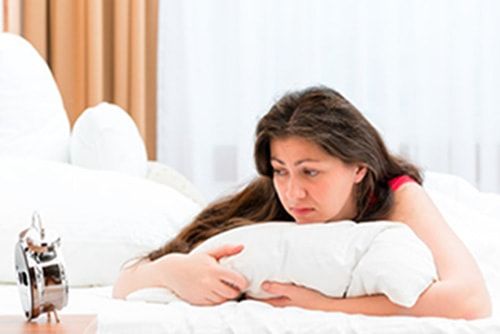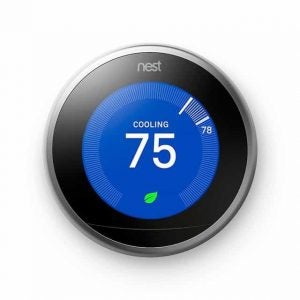Have you ever woken up after a bad night’s sleep and wondered why? Do you sometimes wake up and feel like you’ve only been asleep for five minutes? Everyone at some point in their life struggles to get to sleep at night or has bouts of insomnia.
Not getting at least six hours of solid, unbroken sleep at night can make you feel groggy, irritable and reaching for the coffee pot. Lack of sleep can also cause long term health problems or complications including heart disease, obesity and high blood pressure.
We can end up spending a fortune on sleeping tablets, herbal remedies or even go as far as buying a new bed or mattress to make sure our bed is the relaxing sanctuary we need. But many people don’t realize how the temperature of the room you sleep in can actually have a huge effect on the length and quality of your sleep. But what is the best temperature for sleep?
The Science Behind Sleep
Humans need sleep in order to live our everyday lives – without it you quickly find normal tasks more difficult and struggle to get through the day. But why is this? Scientists revealed that sleep isn’t about saving energy as much as improving your brain. While eight hours of rest only saves 50 calories, the improvement you see in your memory, focus and even speech after a solid sleep is huge.
Dangers
The effect of staying awake for just 24 hours can actually be life threatening and a study carried out in 2010 showed staying awake for an entire day and night has the same impact on your body as having a blood alcohol level of 0.1 – above the legal drink drive limit.
Hallucinations
Stay awake even longer and you could be at risk of sleep psychosis. This scary sounding condition actually causes hallucinations which means sufferers can see, hear, and even taste things that are not really there. Being awake for a prolonged period of time can also cause delusions which mean you believe things that are not true.
So getting a good night’s shut eye will not only stop you from shouting at your colleagues or surviving on caffeine alone, it is also really important for your health.
You may want to read: Everything You Need to Know About Sleep Hallucinations and Sleep Paralysis
Different Stages Of Sleep
It may seem that you just lay down, close your eyes, and drift off but there are several different stages of sleep. The way you move through these phases also determines how much good quality sleep you are getting every night.
First Stage
The first part is light sleep. You feel “half” asleep where your muscles are relaxing and unwinding after the day and your brain is beginning to quieten down. You might be mulling things over in your mind as your brain begins to order itself after a day at work.
At this stage, it is still quite easy to be jolted back to fully awake. If you’ve ever laid in bed and then been awoken quickly by a sharp noise, this is most likely because you were in a light sleep stage.
Second Stage
Once we pass through light sleep we enter what scientists call “true sleep”. This usually happens after about ten minutes of light sleep and if you’ve ever laid next to someone as they fall asleep it can be easily recognised by a change in breathing pattern.
The breath slows, as does your heart rate, and your body is relaxed still further. In a person with a healthy sleeping pattern, this lasts around 20 minutes and then you move onto the next stage.
Third Stage
Deep sleep comes after the first two stages and is really the sleep that does your body the best. During the third stage of sleep, your brain produces delta waves which are high and low frequency. Interestingly, women are known to have more delta wave activity than men. Your breathing and heart rate slows down to its lowest rate during the third phase of sleep.
You might want to read: Sleeping Heart Rate
Fourth Stage
When you pass into stage four it is noticeable as your breathing is rhythmic and your muscles are barely moving. You’ll know the feeling of confusion and grogginess if you are suddenly woken from deep sleep as it can take several minutes to get your bearings and overcome the feeling of being disorientated. In small children, this phase of sleep is where they might sleepwalk or experience night terrors.
REM
Rapid Eye Movement, or REM, can occur about an hour and a half after you fall to sleep. You normally experience three to five episodes of REM per night. REM is when you are not conscious but your brain is still very active. It is this stage of sleep that we experience dreams. After a period of REM sleep the entire sleep cycle begins again.
So How Can Temperature Affect Sleep?
Temperature has a huge affect on our ability to get to sleep and stay asleep. You might want to keep your bedroom warm and cosy but studies show this is not actually the optimum temperature for you to get the best night’s sleep.
Generally, your bedroom should be between 60 to 67 degrees Fahrenheit for the best sleep. This may be slightly cooler than the rest of the house at most times of the year and a lot cooler in the summer.
But why is this? Well, your body is expecting temperature to decrease as night falls. And as you move through the different stages of sleep your body temperature will drop – getting to its lowest point as you enter deep sleep. When your body starts to move through the stages and wake you up, it will naturally increase your body temperature as a way to give you a signal.
This means if your room is too hot to begin with it can mess with your body’s natural signals and stop you from falling asleep in the first place. It might even affect your ability to pass into deep sleep and you could be stuck at the light and true sleep phases for the entire night.
What Can Help You Get a Good Night’s Sleep
Make sure your room is at the right temperature by investing in a good thermostat. Look at the bedding you use and make sure it is appropriate for the season – take off that winter duvet! If you live in really warm climates, then consider a mattress cooling pad to help bring down that temperature. Make sure your bedroom is slightly cooler than the rest of the house and there are no drafts to irritate you.
Switching off your computer and putting down your phone for an hour before bedtime can also help you get to sleep easier as the blue light emitted from electronics disrupts your sleep pattern.
Conclusion
So the next time you’re struggling to sleep and you’ve fluffed your pillows and put down your phone, try these few simple steps to help yourself fall into that deep, comfy slumber.
- check the temperature in your room
- adjust the thermostat to a cooler setting
- wear lighter clothing
- put away all devices
If you’ve got some suggestions or ideas of your own in regards to setting the right temperature for sleeping, feel free to comment and share!



